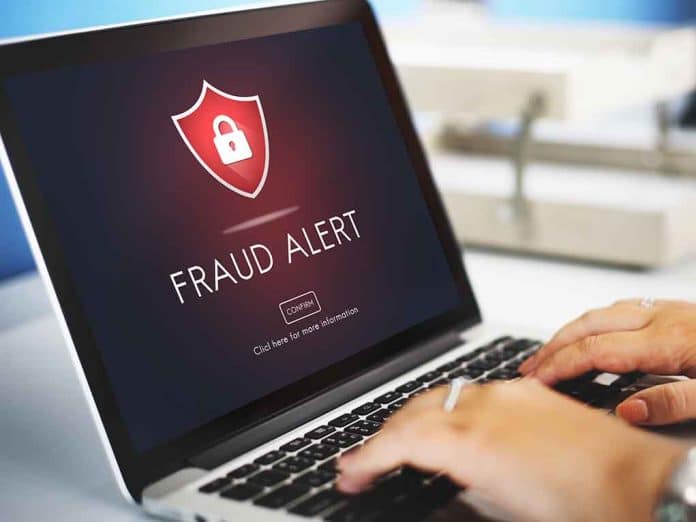
Here’s What To Do If You Become The Victim Of Identity Theft
(RepublicanNews.org) – Millions of Americans experience some form of identity theft each year. In fact, reports of this type of fraud to the FTC rose by a shocking 113% between 2019 and 2020 alone. Up to 34% of all people affected lost at least some money after criminals stole their information, totaling up to nearly $3.3 billion in overall losses.
The good news? You can take action now to prevent identity theft or respond to it when it happens. You DO have options.
What Is Identity Theft?
Every person in America has an identity — a name, a Social Security Number (SSN), an address, a bank account, a medical insurance account and/or credit card account numbers. When criminals gain access to this information, they often use it to steal money directly or open up new credit accounts. They may even use a person’s medical insurance, file taxes in their name, or assume a victim’s identity when they get arrested.
The side effects of this dastardly crime can be devastating for consumers. Criminals may severely damage victims’ credit, accrue tax debts under false SSNs or even leave people fighting to prove it wasn’t really them who opened the accounts. Cases may go on for years at a time — and that’s exactly why prevention is so important.
Protecting Yourself From Identity Theft
While identity theft is more common than people think, there are ways you can prevent becoming a victim. One of the first steps you can take to protect your identity is to secure important documents. Keep these items in a safe and secure area at all times:
- Social Security card
- Medicare card
- Bank account information
- Credit card information
- Birth certificate
If you receive sensitive items in the mail, try to get them out of your mailbox as soon as possible. When throwing documents away, be sure to shred them. Blacking out information isn’t always enough; criminals may be able to remove the ink or see through your attempts.
Don’t Just Give Out Your SSN
Your SSN is important for certain companies and organizations to identify who you are. It also serves as a direct connection to the Social Security Administration, allowing the agency to track your income and benefits. Protect your SSN from prying eyes whenever you can, and don’t give it out unless it’s absolutely necessary.
Not many places will ask for this number except for your bank, employer and the Internal Revenue Service (IRS). Other government agencies may ask for your SSN, but typically only if you visit in person or call them directly.
Keep in mind that places requiring your SSN aren’t going to call, text, or email you asking for your information. Be immediately wary of any incoming telephone call that asks for you to confirm the number over the phone; this is likely to be a scam.
Medical providers, your child’s school and certain companies may also ask for your SSN, but they don’t require it in the same way the government does. Before you hand it over, ask them these critical questions:
- Why do you need it?
- Is there an alternative way to confirm my identity?
- Is only the last four digits of my SSN acceptable?
- How will you protect it?
If they have ill-intent, they will likely try to pressure you into giving them your full SSN. Don’t fall for it! Instead, report them to the Federal Trade Commission (FTC). SSN theft is a crime.
Prevent Online Fraud
In the online sphere, it’s easy for hackers to gain access to online accounts and steal your information. This tragedy is relatively easy to prevent.
Be sure to have strong passwords on all of your online accounts and try to avoid using the same password more than once. Passwords should always contain at least 16 letters and numbers with at least one symbol whenever possible. In some cases, you can even set up multi-factor authentication, meaning there are several steps to logging in. It may seem inconvenient, but it also makes identity theft far more troublesome.
Don’t share credit card numbers, SSNs, addresses and other personally identifying information via social media, either — even in private messages. All it takes is for one hacker to enter your account for them to gain access to everything you’ve ever shared.
What If My Identity Was Already Stolen?
Identity theft can happen to anyone — and it can even occur even if you take every possible step to protect yourself. While it’s common for people to feel shame afterward, or even embarrassment, please know you aren’t alone. All of the protections and precautions listed here simply boost your safety. No one can truly guarantee you won’t become a victim as criminals often adapt and find ways to circumvent safeguarding efforts.
There are several ways to tell whether you’ve become a victim of impersonation fraud. Visit IdentityTheft.gov to find the best course of action as every situation is different.
Copyright 2022, RepublicanNews.org





![Shocking Bot Advice: Kids in Danger [NEW RESEARCH] When the Chatbot is the Predator (Mini](https://republicannews.org/wp-content/uploads/sites/11/2026/02/NEW-RESEARCH-When-the-Chatbot-is-the-Predator-Mini-100x70.jpeg)

